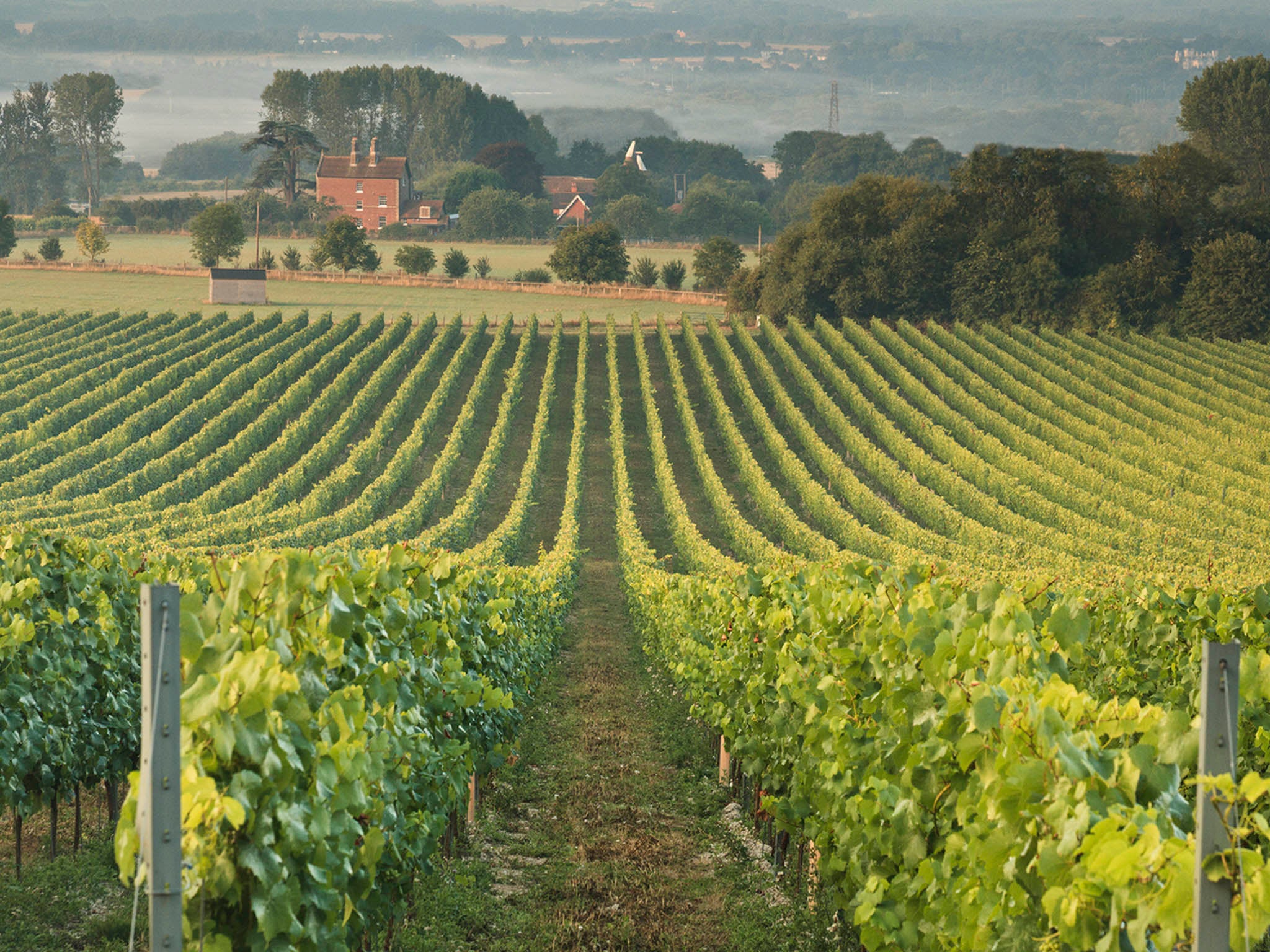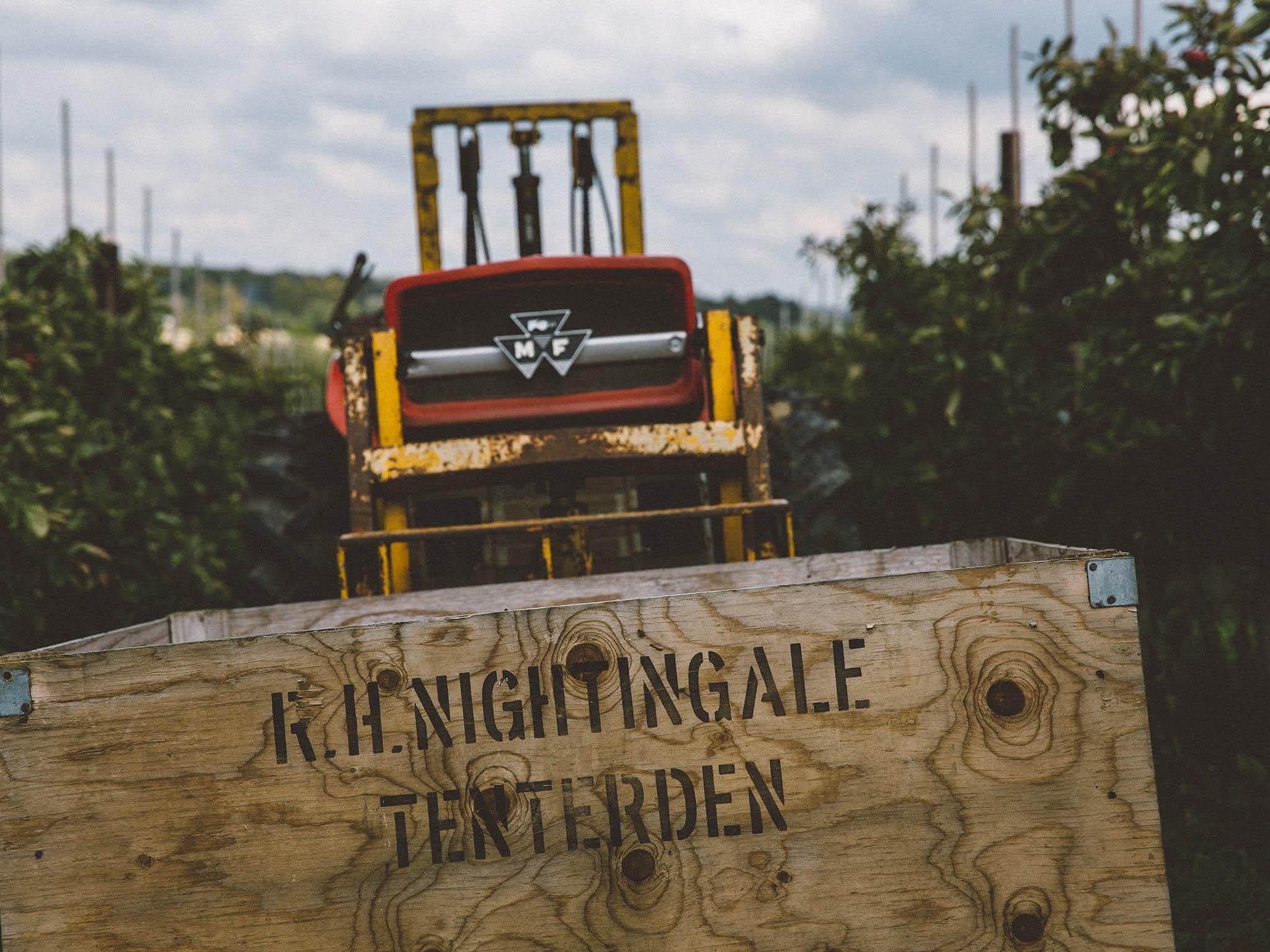From real ale to organic cheese: On the trail of good food in Kent
From produce grown for hundreds of years to 21st century innovations, Kent is not known as the ‘Garden of England’ for nothing. Jo Lamiri samples the quality beer, cider, cheese and wine on offer


Your support helps us to tell the story
From reproductive rights to climate change to Big Tech, The Independent is on the ground when the story is developing. Whether it's investigating the financials of Elon Musk's pro-Trump PAC or producing our latest documentary, 'The A Word', which shines a light on the American women fighting for reproductive rights, we know how important it is to parse out the facts from the messaging.
At such a critical moment in US history, we need reporters on the ground. Your donation allows us to keep sending journalists to speak to both sides of the story.
The Independent is trusted by Americans across the entire political spectrum. And unlike many other quality news outlets, we choose not to lock Americans out of our reporting and analysis with paywalls. We believe quality journalism should be available to everyone, paid for by those who can afford it.
Your support makes all the difference.Kent has long been regarded as the “Garden of England”, so it’s no surprise that Kent Food Trails offers plenty to taste and enjoy.
All six trails – vineyards and wine; hops and beer; apples, cider and juices; cherries and berries; cheese and dairy and craft distilleries – are designed to be followed on foot or by car, with maps, walking routes, tastings and restaurants included.
The idea is to support local producers and make it easy for food lovers to access all the county has to offer, from wine, cheese and apples to organic meat, cider and beer.
It’s not known as the capital of English wine for nothing. Stephanie Durling of Produced in Kent, which launched the trails in October 2018, says: “Kent has the perfect blend of soils, climate and passion.
“There are already over 50 vineyards – more than any other English county – and our wines are picking up major awards at international wine competitions so enthusiasm and interest is higher than ever.”

A visit to Chapel Down – the country’s leading wine producer – could see you quaffing crisp sauvignon at a time more usually confined to coffee. Tastings are expertly conducted and a guided tour of the 22-acre vineyard feels more like being in the Rhône Valley; some of the bacchus vines are 30 years old, with more unusual varieties such as hybrid tondo from Ireland. Due to global warming, they are now also growing chardonnay grapes.

English wines are fresh and vibrant; look out for the 2018 vintage – an extraordinary harvest due to the cold, dry spring and hot dry summer. Last year, they planted 100,000 vines, many on a chalk line that runs to France’s Champagne region; the terroir is so good that champagne houses such as Taittinger now have vineyards in Kent.
From grapes to hops, Old Dairy Brewery was set up in 2010 in an old milking parlour deep in the Kent countryside. The company quickly grew a loyal fan base among real ale enthusiasts who appreciated the finely crafted recipes and local hops (from Hukins Hops, three miles away).
They soon expanded to a much larger brewery in Tenterden with gargantuan steel mashers and a small-scale bottling “plant”, adding a shop and tastings of their award-winning Red Top, Gold Top and Blue Top beers; there are also limited edition seasonal beers and even a vegan, gluten-free version, Follow the Herd.
Given the county’s huge apple production, it was no surprise to discover Nightingale Cider. Enterprising third-generation farmer’s sons Sam and Tim Nightingale’s best memories are of long days working outdoors and foraging; evenings experimenting with juices and home brews – “the dark art of what happens when apple juice goes wrong!”

Their father had produced apple and pear juice and, after first making cider as a hobby, the brothers released their first bottles in 2013; such was their success that two years later Sam swapped his job in sound recording for muddy boots and overalls. They’re on to a winner: available from their farm shop, the ciders, brewed from braeburn, russet and Cox’s Orange Pippins with wild fermentation over two years, are incredibly crisp and fresh-tasting.
Another fruit farming family started Chegworth Valley in 1983 with just 15 acres and now has 330, supplying independent shops and farmers’ markets with its traditional apple and pear varieties, award-winning juices, soft fruit and vegetables.
Their cafe in Tenterden – white walls, washed wooden floorboards and farmhouse tables – is the ideal place for a Kentish platter lunch: breads from Plaxtol Bakery and Cranbrook Bakery; charcuterie and cheeses from Curd and Cure including: Kentish blue (Kingcott Dairy, Staplehurst), Bowyer’s brie (Cheesemakers of Canterbury) and raw goat’s milk cheese Shaggy Beard (Ellie’s Dairy). The deli side of the shop is great for seasonal fruit and vegetable pickings from Chegworth Valley and others.
There’s always something special about seeing farm animals in situ. At Silcocks Organic Farm, David Fenton, the epitome of a country farmer with flat cap and green jacket, led us through his fields just outside St Michael’s, dodging cowpats as we admired his beautiful Hereford cattle, Gloucester Old Spot pigs and Romney and Dorset sheep.
David is justly proud that his livestock is reared sustainably with no stress. “Original native breeds of cattle are ideal for pasture grazing. We have Original Population Traditional Herefords for meat supply and Ayrshires and British Friesians for milk production.

“Pasture should be a diverse mixture of herbage to provide a wide variety of beneficial nutrients and avoid using artificial fertilisers. Rotational grazing also minimises pasture damage and encourages wildlife. Pasture-fed cattle are healthy and content, growing slowly and producing milk and meat with higher percentages of beneficial omega 3 and 6 fatty acids, trace elements and minerals, as well as better flavour.”
At the airy, wood-beamed Silcocks farm shop, you can buy their superb meat – slaughtered at local Soil Association-approved abbatoirs and hung for 28 days: rose veal, award-winning lamb and hogget, sausages, bacon and burgers. Milk, excellent brie-style cheeses and the creamiest, most natural ice cream are also made in the farm’s dairy.
Although the trails have been devised by food category, you can just as easily create a bespoke trail. It’s a model that other counties would do well to emulate, bringing food lovers up close and personal with the people who make or grow what we eat.
Join our commenting forum
Join thought-provoking conversations, follow other Independent readers and see their replies
Comments